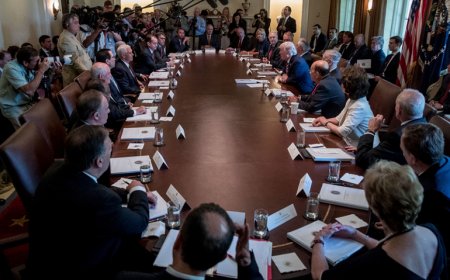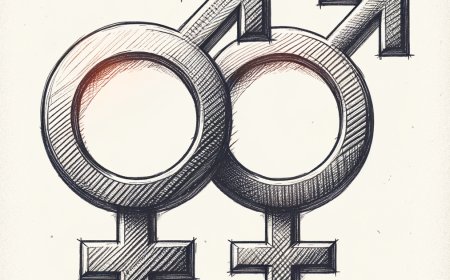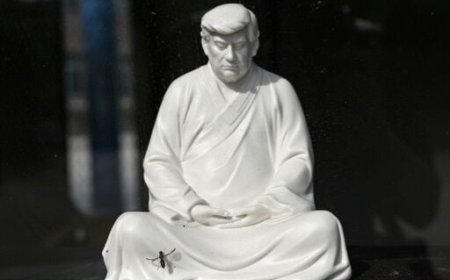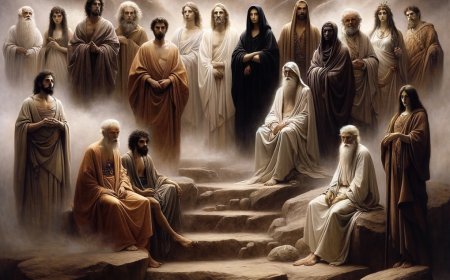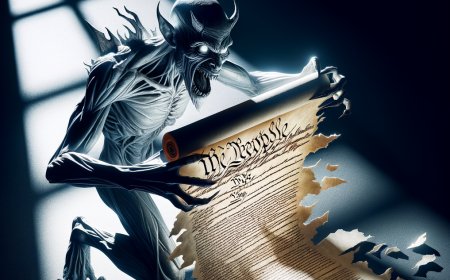A Call for Reflection Among Christians
This call to reflection urges believers to recognize the implications of their political endorsements, particularly as they relate to faith and morality.

LISTEN HERE -
"For it is impossible for those who were once enlightened, and have tasted of the heavenly gift, and were made partakers of the Holy Ghost, And have tasted the good word of God, and the powers of the world to come, If they shall fall away, to renew them again unto repentance; seeing they crucify to themselves the Son of God afresh, and put him to an open shame." Hebrews 6:4-6.
In politics and Christianity today, an escalating tension has emerged within the Christian community regarding the support for political figures like Donald Trump. This call to reflection urges believers to recognize the implications of their political endorsements, particularly as they relate to faith and morality.
A foreboding message has arisen: God is aware of your decisions, and there will be consequences for standing behind those whose actions seemingly contradict Christian values. The message warns that many are bound to face exposure and disappointment, especially regarding their choices in leadership.
The embrace of a leader who has been labeled controversial by many reflects poorly on those who support him, and the ramifications will soon become evident.
The Illusion of Security and True Leadership
Supporters of Trump believed they were backing a candidate who would prioritize economic stability and reduce conflict. However, recent actions, including Trump’s inability to influence international relations positively or manage inflation, have left many disenfranchised.
The growing realization that promises made were largely unfulfilled serves as a disheartening revelation for his base and prompts questions about the integrity of the leadership they chose. The Christian community, particularly those identifying with the “MAGA” mindset, must examine the reality of their political allegiances.
The notion that Trump could reverse societal issues and restore a Christian ethos in America is challenged by ongoing societal degradation that many attribute to a departure from divine principles.
The Misunderstanding of Christian Principles
There is a clear clash between the actions of individuals who profess a Christian alignment and the chaotic reality reflected in societal behaviors. Issues including violence, discrimination, and moral decay depict a troubling departure from Christ-like attributes.
The belief that any political figure, specifically Trump, can transform the nation into a bastion of Christian values is presented as naïve and misguided. This assertion emphasizes that systemic issues cannot be resolved through political policy alone.
Labeled as demonic forces, these challenges reflect a broader moral and ethical decline that transcends political solutions. As the momentum grows against wrongdoings present in leadership and society, a plea for repentance emerges as the crucial step forward.
The Urgency of Repentance
The discourse encourages those within the Christian community to return to their core beliefs and mend their focus on God. This involves acknowledging shortcomings and recognizing the reality of the nation’s ongoing struggles with sin and destruction. There is a call to abandon false prophets and disillusionment stemming from erroneous notions of America as a purely Christian nation.
As the future unfolds, the wisdom of discerning the true nature of spiritual guidance is paramount. Recognizing the divergence between authentic Christian tenets and political maneuverings is essential for spiritual restoration. The directive here is straightforward: repent and seek genuine connections with faith rather than misguided political allegiances.
A Hope for Transformation
In conclusion, the challenges faced by the nation and its people are multifaceted, and superficial policies will not remedy deep-seated issues. True transformation is dependent on divine intervention and sincere repentance. The narrative presents a compelling argument for self-examination among Christians as it urges them to reclaim their focus on God amid turbulent political landscapes.
If there are questions or reflections on this matter, the dialogue should continue as the community navigates the complexities of faith, politics, and morality in the current era. Ultimately, the message remains clear: America is not a Christian nation as it stands today, and realization of this truth is critical for a path forward rooted in faith.

















